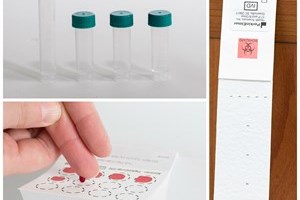Practice Takeaway: Providers should be aware that three different body fluids – saliva, blood or urine – can be used to assess adrenal gland function, and should know each method’s advantages and disadvantages, when deciding how to test patients. Inadequate or excessive production or disrupted circadian patterns of cortisol synthesis by the adrenal glands in response to stressors can eventually…
Tags: Dried Urine Testing, Saliva Testing, Blood Spot Testing, Stress, Adrenal and Cortisol




